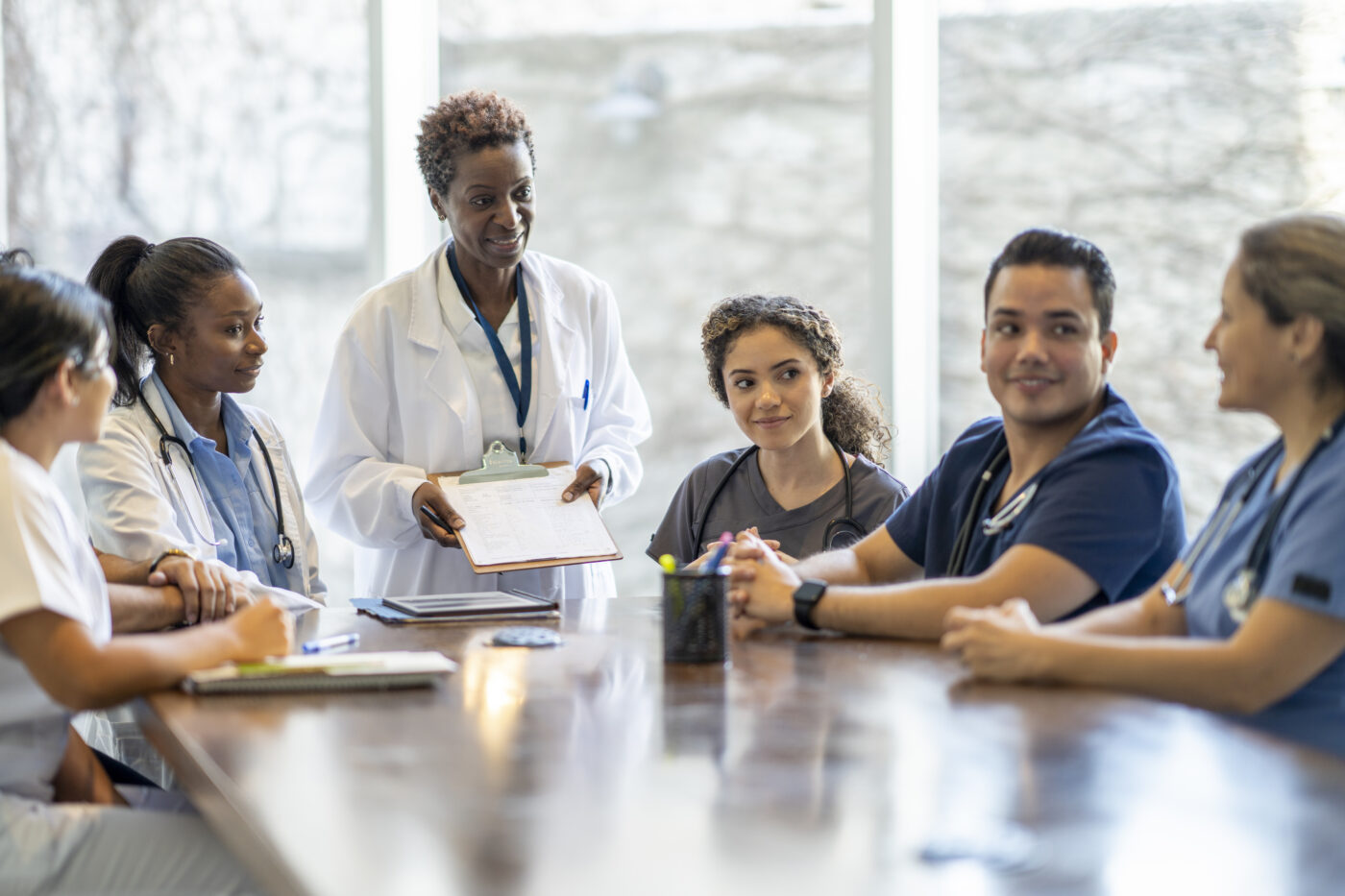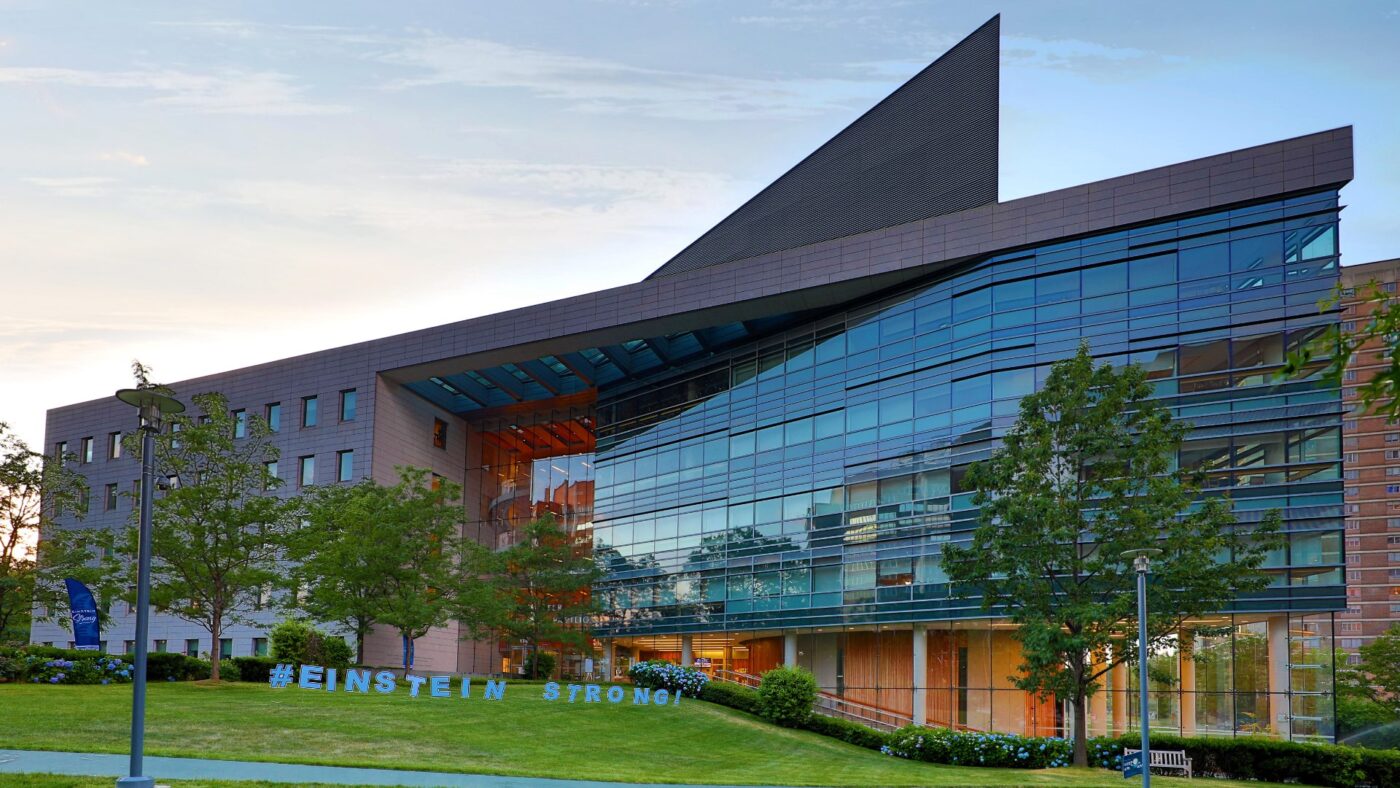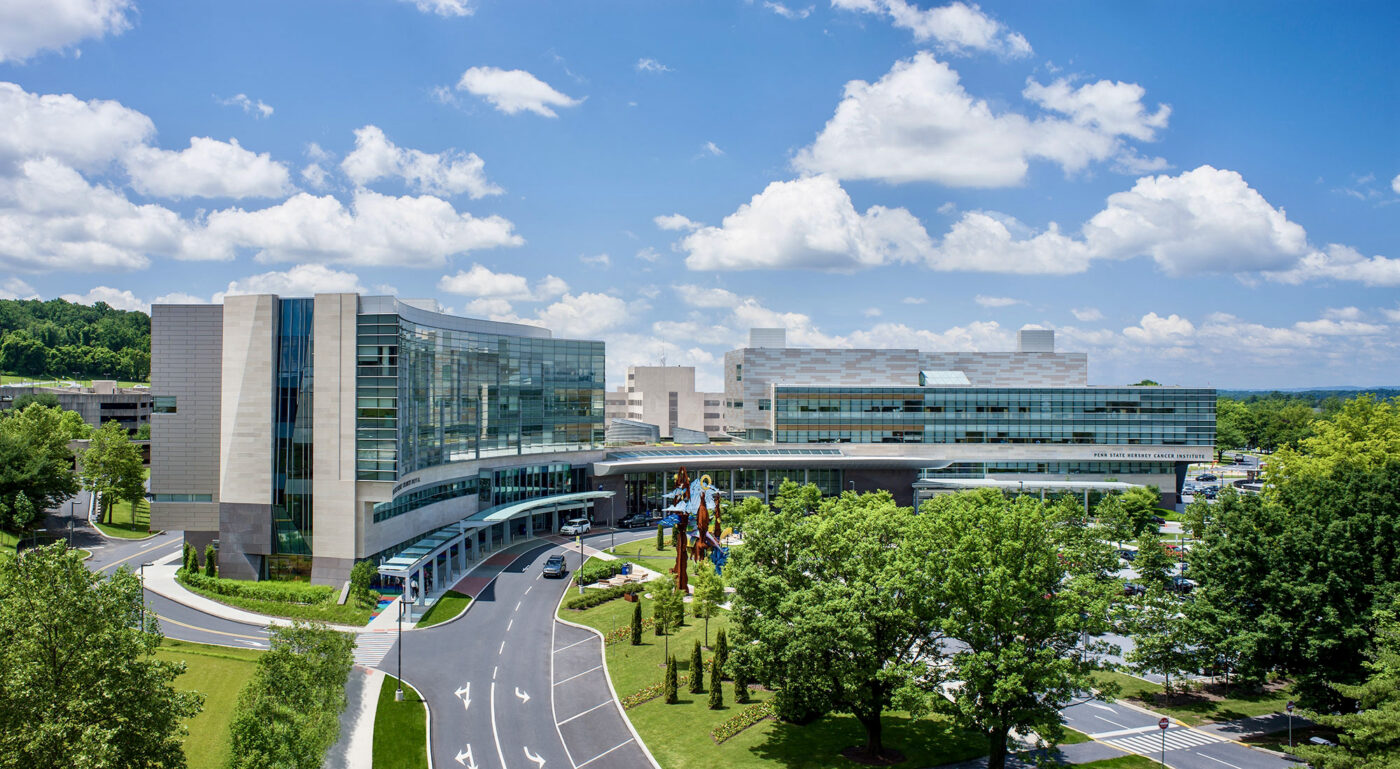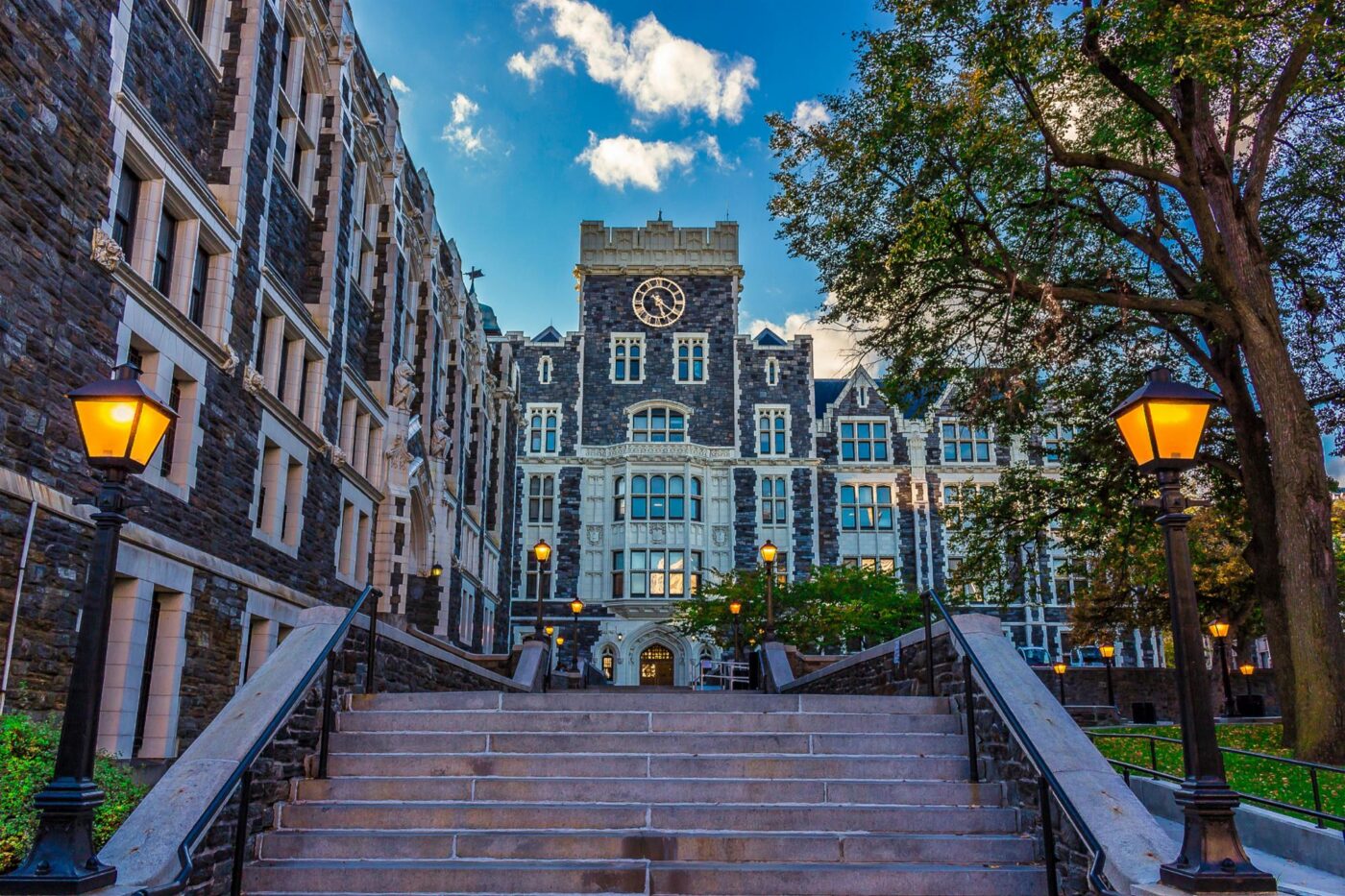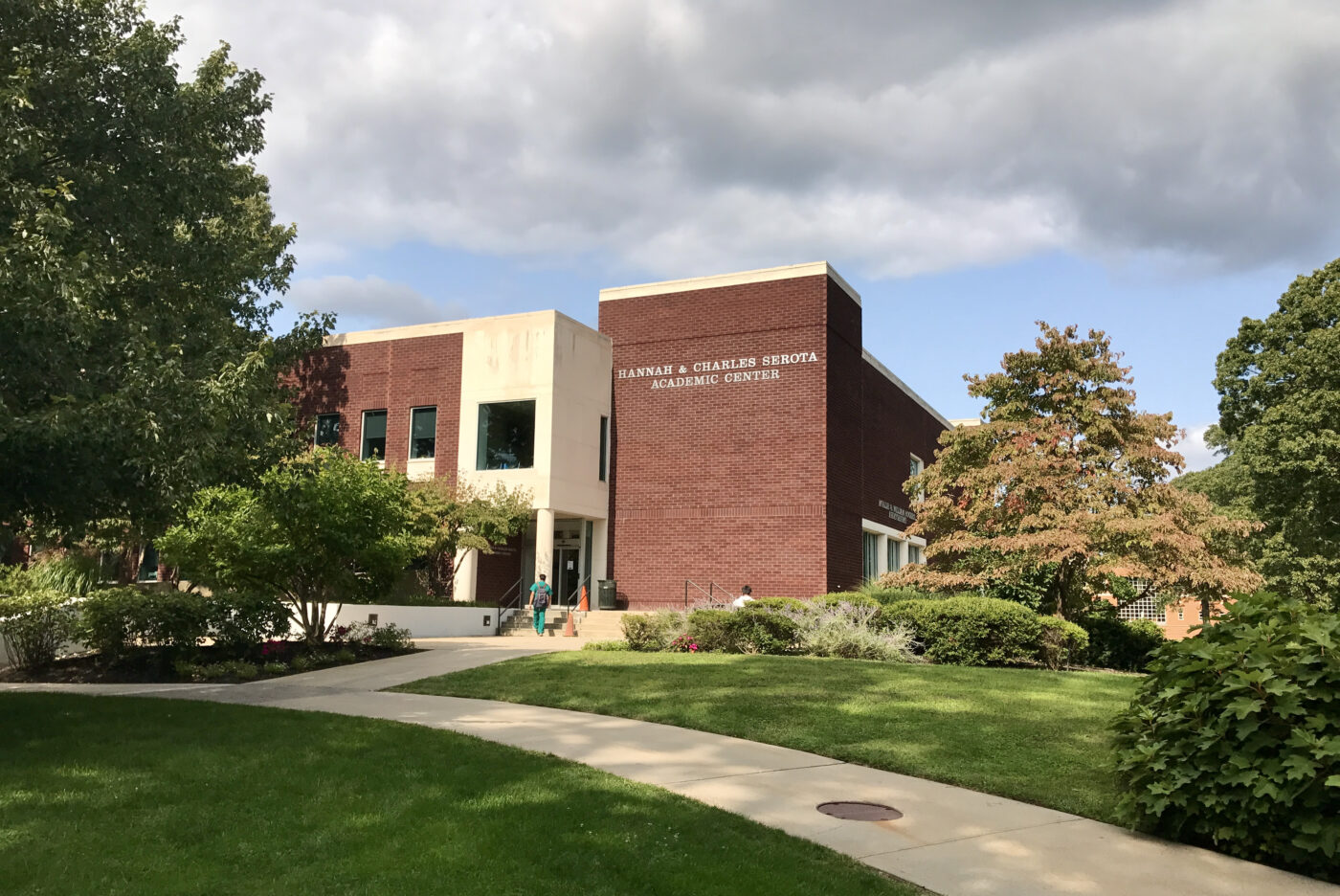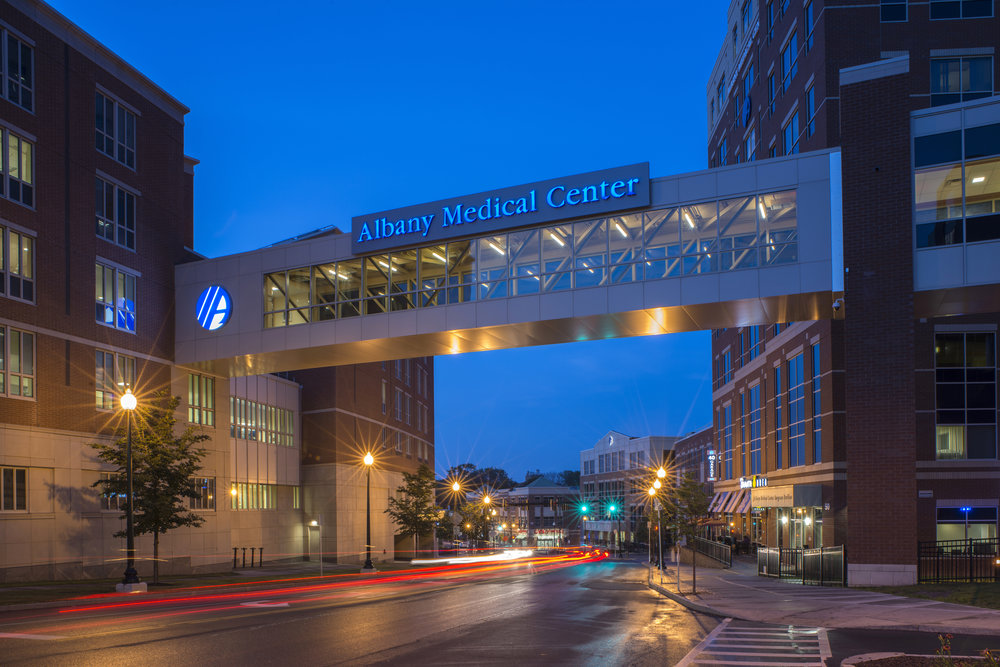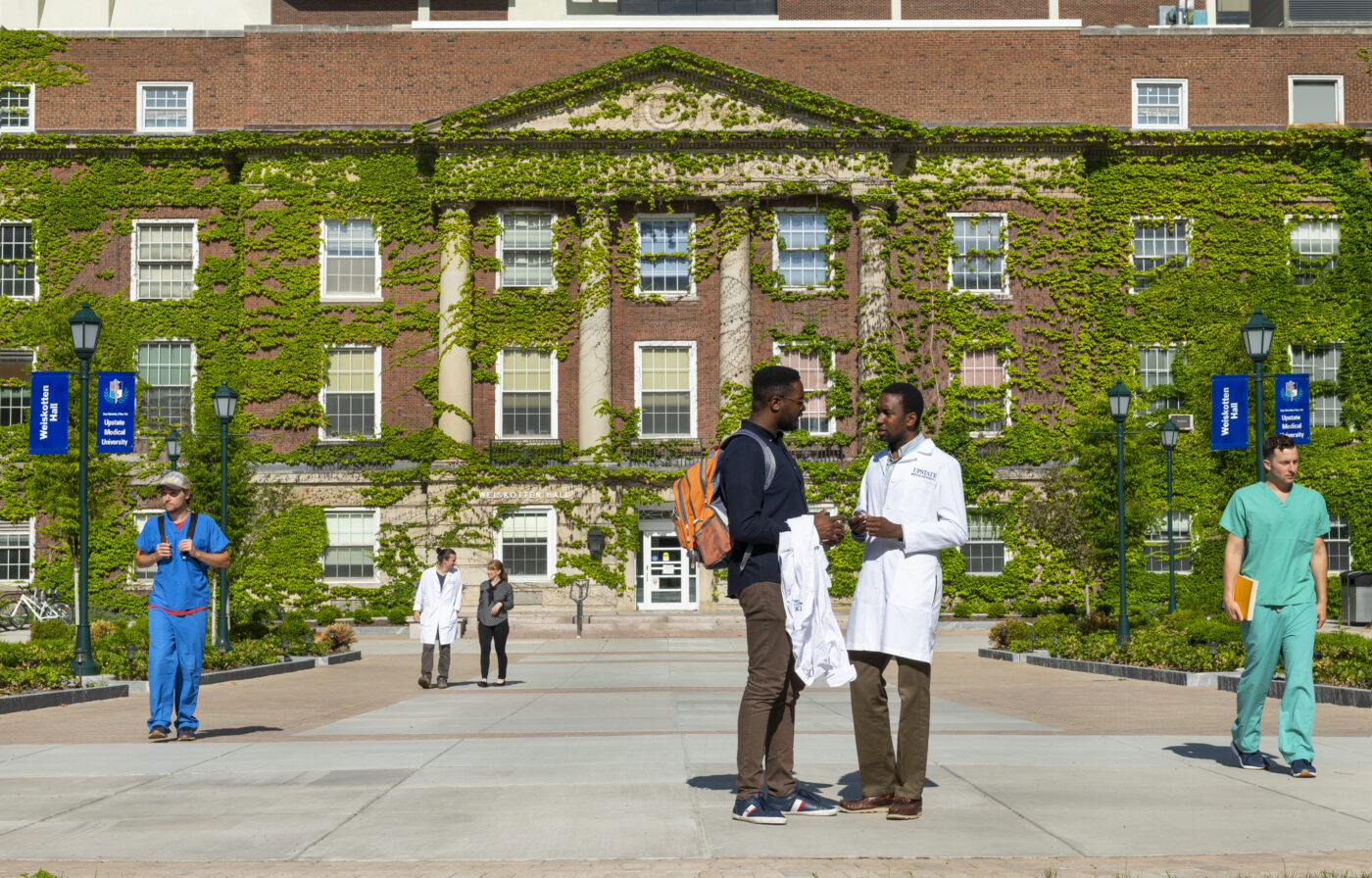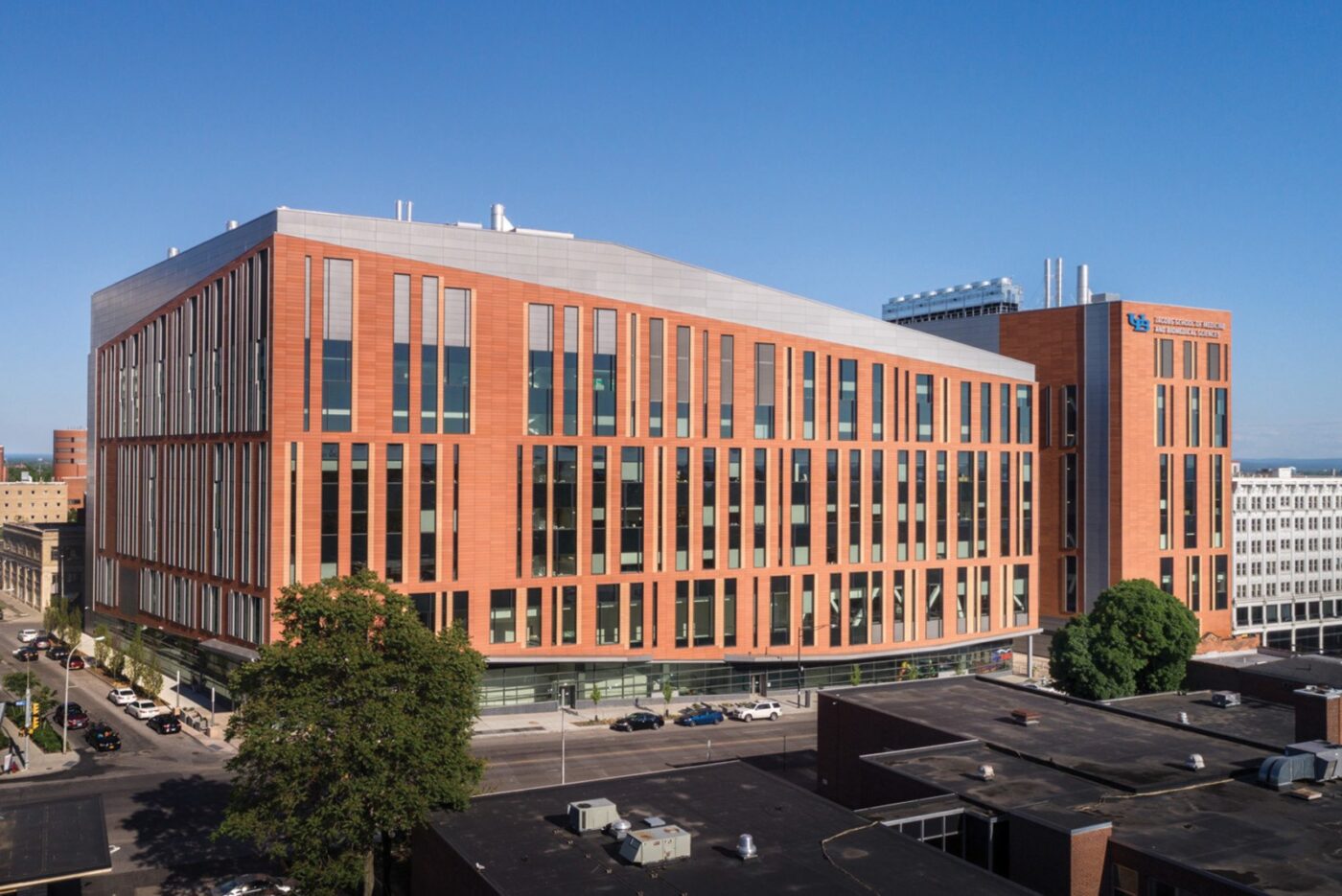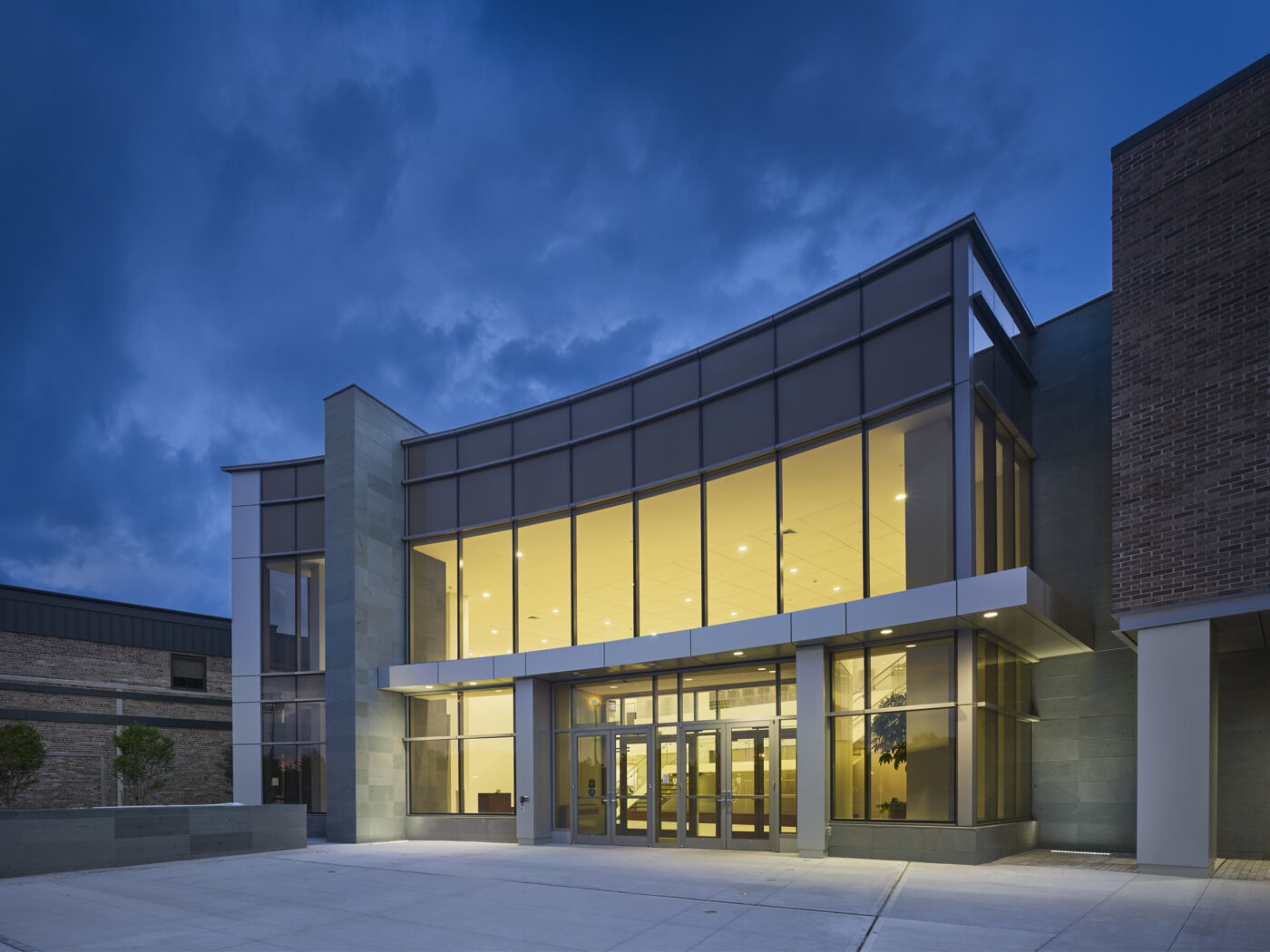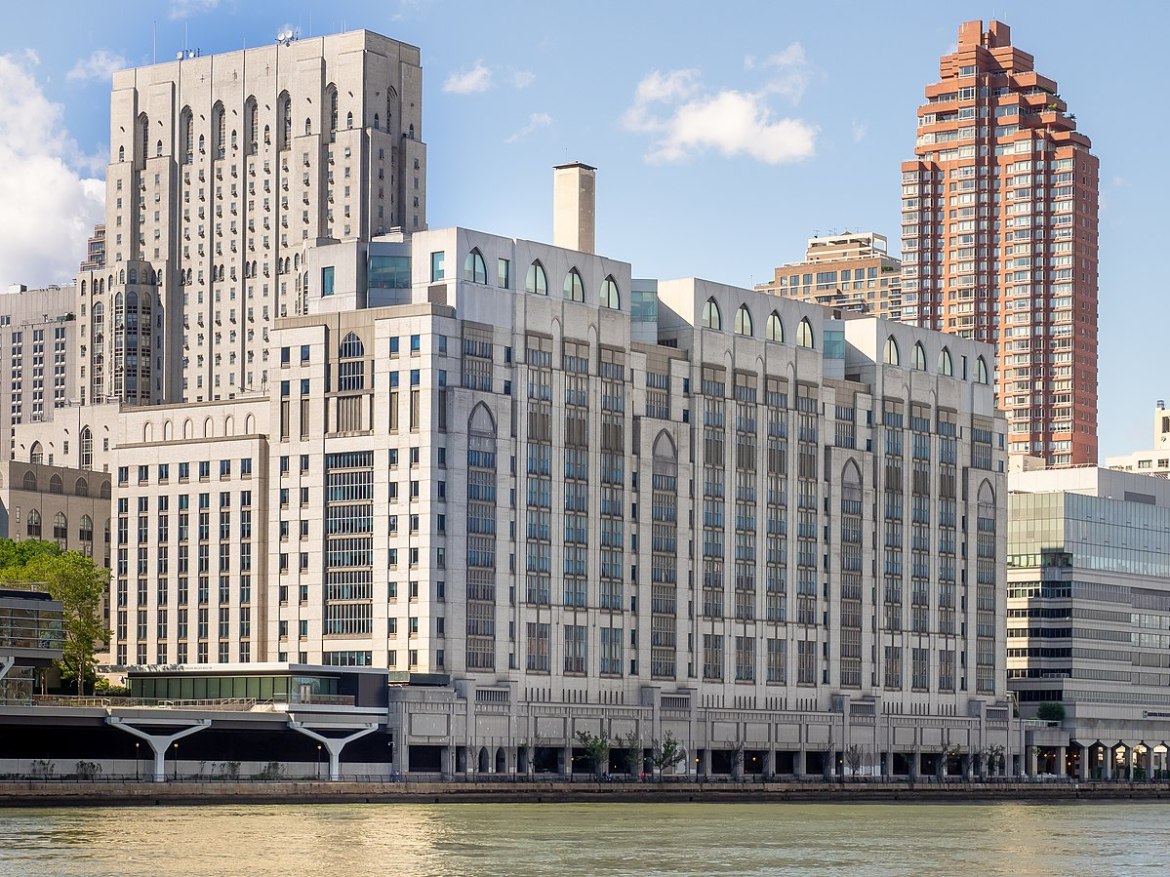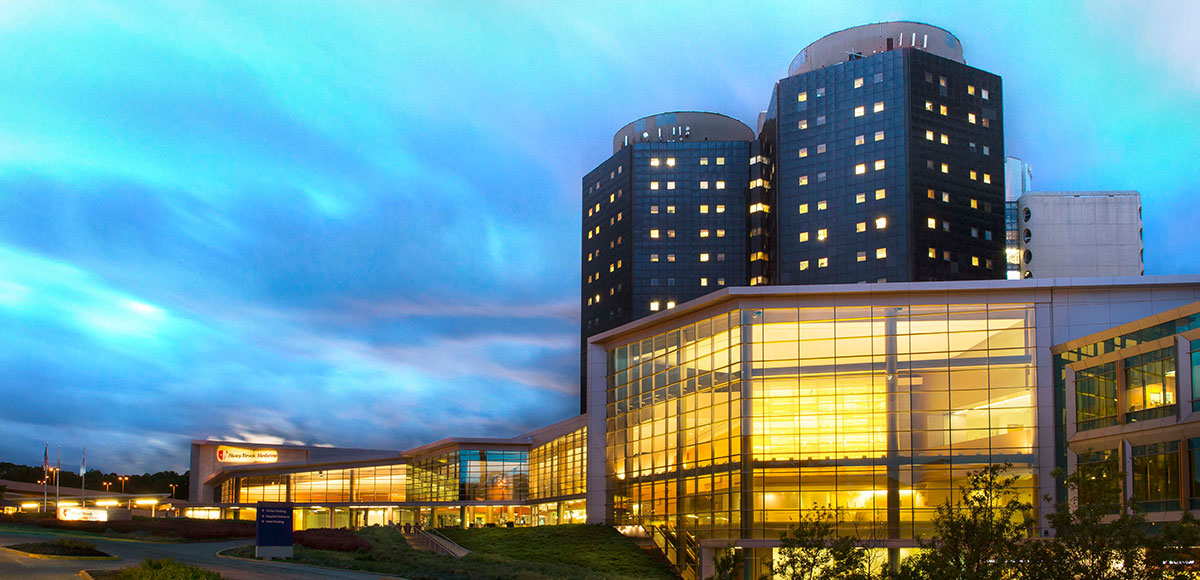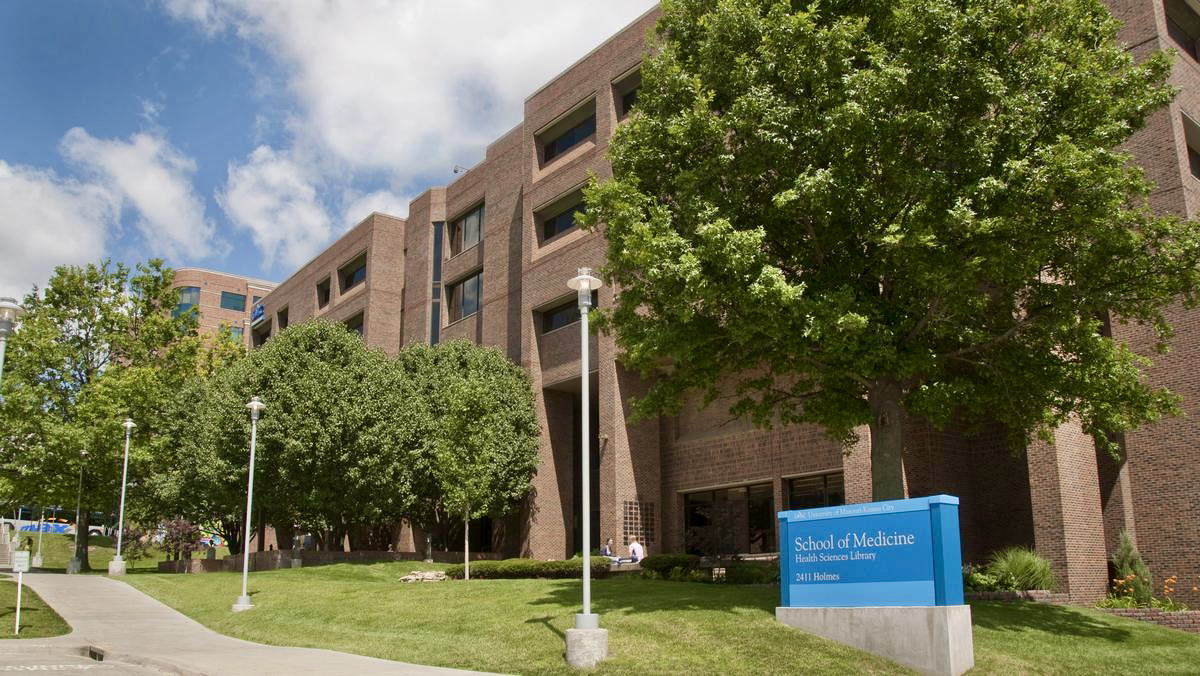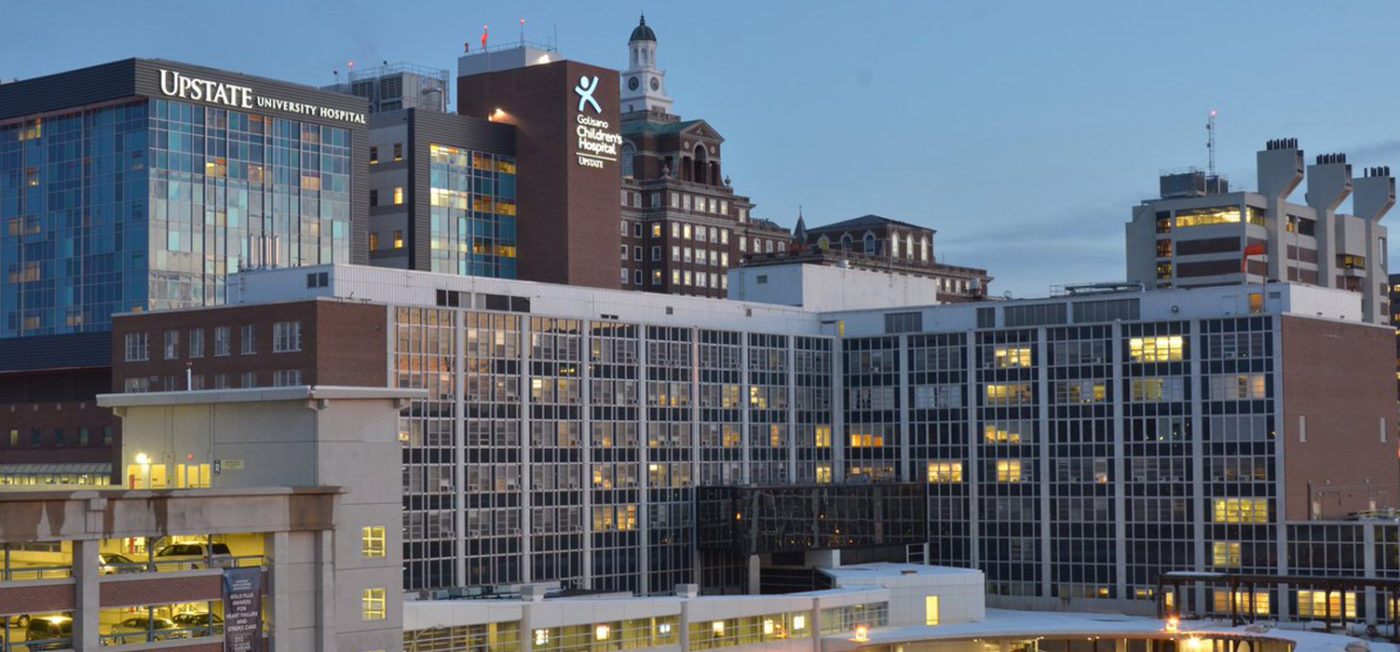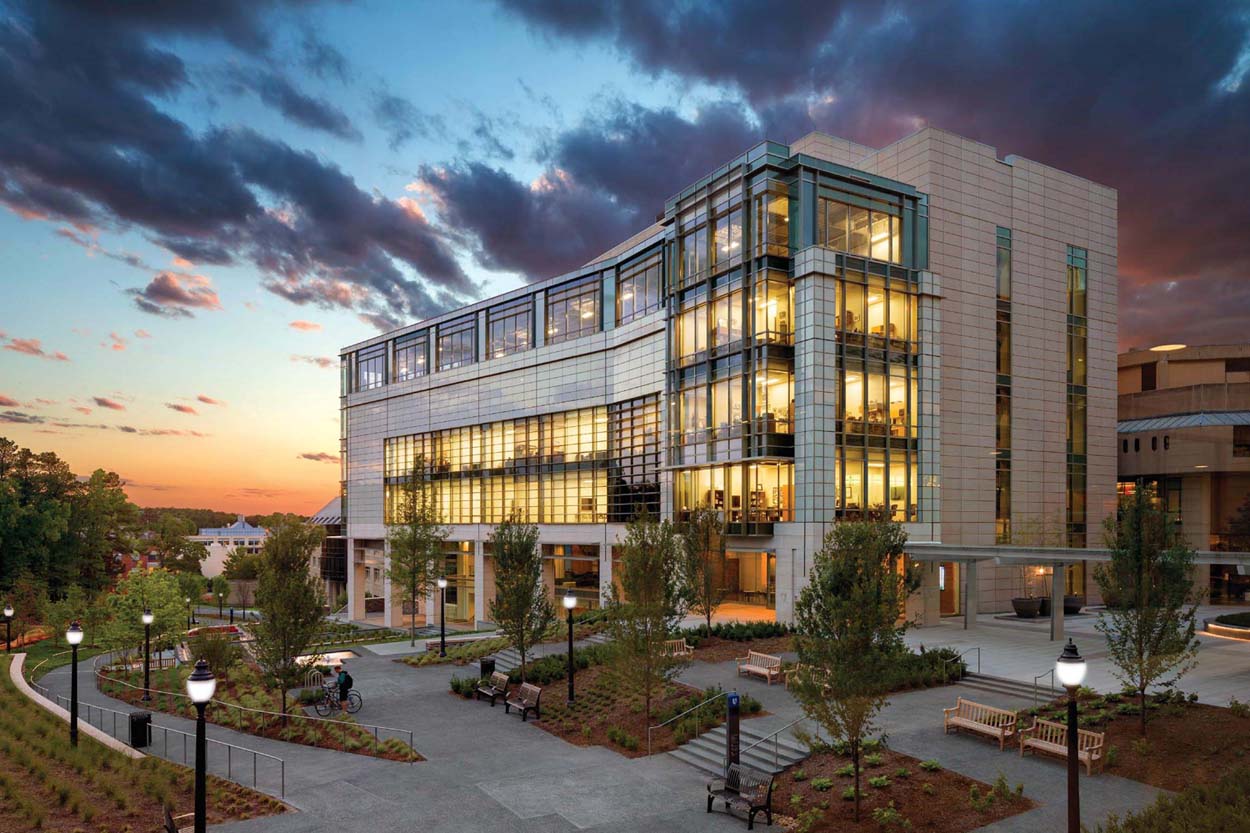If you are a resident of Pennsylvania and find yourself searching for “medical schools near me,” you’d be hard-pressed not to find Geisinger Commonwealth School of Medicine (GCSOM) to be an interesting option. Based out of Scranton, PA and with five other regional campuses throughout PA and NJ, Geisinger Medical School offers a comprehensive undergraduate medical program that is community centered and patient focused.
The beginnings of the Geisinger Commonwealth School of Medicine came together in 2004 at the hands of a group of seven physicians, business owners, leaders in the community, and attorneys. At its inception, these individuals saw a need for medical schools in Pennsylvania that would focus on a community-based approach to medicine, and this program is the fruit of their vision.
GCSOM’s six regional campuses are a part of the mission to provide a community-centered medical education with a plethora of community engagement as an integral aspect of the program. Students receive crucial clinical experience throughout their four-year education under the care of hundreds of local volunteer faculty members.
The process of applying for medical schools can be complex and overwhelming, and most candidates have many questions as to how to increase their chances of acceptance to Geisinger Commonwealth School of Medicine.
This guide will walk you through the process step-by-step and provide you with the information you need to move forward, including statistics about acceptance rates, class profiles, essay prompts, sample answers, and more.
Be an Informed Applicant
If becoming a physician is your calling, then choosing, applying, and being accepted to a medical school that meets your needs must be your top priority. You’ll want to select a school with similar values and vision to those of your own.
You’ll also want to consider whether or not to remain an In-state student or become an Out-of-state student. Searching “medical schools near me” will give you a variety of local options and, for candidates residing in Pennsylvania, that can mean a slightly better chance for acceptance. Still, out-of-state candidates are matriculated often at GCSOM, so it’s worth a shot.
Geisinger Medical School is a highly selective program to get into, and they utilize their own protocol of admissions requirements, applications, and interview system. The process can be stressful and tedious, which is why we have created these Medical School Guides to assist you through to the end.
We have Medical School Guides for a variety of programs, so you may want to consider viewing them and comparing your options side by side as you decide which schools to apply to.
Topics covered in this guide include:
- Why Geisinger Commonwealth School of Medicine (GCSOM)?
- Medical Programs at Geisinger Commonwealth School of Medicine
- Facilities, Student Organizations, and More
- Selection Factors: What GCSOM Looks for in an Applicant
- Admissions Requirements for Geisinger Commonwealth School of Medicine
- Geisinger Commonwealth School of Medicine Acceptance Rate & Admissions Statistics
- Geisinger Commonwealth School of Medicine Tuition & Cost of Attendance
- AMCAS Primary Application & GCSOM Secondary Application
- GCSOM Secondary Application: Essay Prompts, Sample Answers, and Advice
- Geisinger Commonwealth School of Medicine Interview Process
- Medical School Admissions Consulting
- Voluntary Healthcare Internships Abroad
Personalized Help
This guide will be an incredible help to you on your application journey with Geisinger Medical School, but many students find it helpful to have the assistance of an expert who can walk you through the process one-on-one. Our Medical School Admissions Consulting program offers a wide range of services, including preparing candidates for their interviews, giving advice and tips about the essay section of the application process, and more. Contact us here for more information.
Why the Geisinger Commonwealth School of Medicine? (GCSOM)
Geisinger Commonwealth School of Medicine has a reputation for teaching aspiring physicians to be community centered. This is an excellent place for potential students who subscribe to the mission and vision of GCSOM of putting patients first, creating an atmosphere of innovation, and working together as a community to provide the best care possible.
Applicants should look over the list of Geisinger’s Values to see how they line up with your own set of values. GCSOM goes into detail about the five values that are: Kindness, Excellence, Safety, Learning, and Innovation.
The MD Program at Geisinger Commonwealth School of Medicine is based on the concept of Total Health Curriculum. The program is integrated and fully immersive, putting students right in the trenches with real-life patient experience. The Longitudinal Clinical Experience puts students into primary care clinics as early as the second semester, providing that early clinical experience that is so important.
Geisinger Medical School is committed to training physicians who will be both confident in the science of medicine and also skillful in the art of coordinating all of the other aspects of doctoring. Their curriculum includes topics such as Community Immersion, Health System Citizenship, and Social Justice and Health Equity.
Geisinger Commonwealth School of Medicine Ranking
US News and World Report states that Geisinger Commonwealth School of Medicine ranked:
- #60 in Most Graduates Practicing in Rural Areas
- #125 in Most Graduates Practicing in Primary Care Fields
- #143 in Most Graduates Practicing in Medically Underserved Areas
Medical Programs at Geisinger Commonwealth School of Medicine
People often question, “is Geisinger an MD or DO program?” Geisinger Medical School offers a fully integrated, immersive four-year MD program. They do also have a Master of Biomedical Sciences (MBS) degree that is an option many choose prior to the MD program.
Doctor of Medicine (MD) Program
At GCSOM, the four-year MD program is an evidence-derived protocol of training students to be knowledgeable about the science, compassionate towards all patients, and able to see patients as individuals who require individualized plans. This program is fully integrated and emphasizes being community-minded.
GCSOM sees their MD curriculum as a tree with three parts, or phases:
- Phase I/The Roots – Principles of Medical Science and Practice. This is where the foundational roots of the medical program are planted and nurtured in their infancy. The core science is taught in detail.
- Phase II/The Trunk – Core Clinical Immersion. With the Roots of the curriculum in place, this second Phase builds on everything that’s been learned. There is an emphasis in this phase on clinical experience that starts basic and grows to be more complex.
- Phase III/The Branches – Career Differentiation and Exploration. In this final Phase, students will grow in their own direction, like branches reaching up to the sky. Clinical opportunities will become more advanced, and you will be focusing on the area of medicine you are most interested in.
There are six longitudinal themes that students make their way through in this program that Geisinger Commonwealth Medical School faculty believes creates well-rounded medical professions.
The following are the six themes of the Total Health Curriculum for the GCSOM MD program:
- Social Justice & Health Equity
- Health System Citizenship
- Primary Care
- Personal & Professional Development
- Community Immersion
- Population Health
Master of Biomedical Sciences
Designed to closely resemble the first year of the Geisinger Commonwealth Medical School medical program, this route is a good choice for students who are looking for a career in the medical field, interested in continuing education or a specialty school in the medical field, and more.
One of the benefits of this program is that each student receives personalized advice about your coursework, options for your education moving forward, and your professional future. Professional development courses further hone your abilities to succeed in the workplace, whether that ends up being in the medical field or any other profession.
Another incredibly useful benefit is that GCSOM’s Master of Biomedical Sciences degree guarantees you an interview for the MD program, if you decide to go that route after earning your MBS. In a school like this, even getting to the interview stage is a great feat, so this guarantee can be of great assistance.
The Master of Biomedical Sciences coursework is held in-person or virtually.
Residency Programs
Geisinger Medical School offers residency and fellowship programs that provide robust clinical volumes under the care of knowledgeable and experienced physicians. The patient pools are diverse, giving the students ample opportunity to observe and treat a variety of conditions and pathophysiology. GCSOM has over 30 medical residency programs of a wide range of specialties and subspecialties from which to choose.
The Geisinger Emergency Medicine Residency is one of the most popular programs. It’s in those moments when a person’s life is hanging in the balance that the brain of the physician must put all of its stored knowledge to use. This program teaches residents to be compassionate, better communicators, and to grow their medical knowledge base in or to put to use evidence-based practices.
Another choice in high demand is the Geisinger Internal Medicine Residency where graduates can really put the full gamut of what they’ve learned to use. This is one of the most varied programs and some may choose to do pediatrics as a subspecialty.
Facilities, Student Organizations, and More
Facilities
There are an impressive six regional campuses for the students of Geisinger Commonwealth Medical School located throughout Pennsylvania and one in New Jersey. This element is key to the community centered approach this school has built its foundation upon.
Communities are all so different and varied, and every community deserves to have the very best medical care possible. By working in clinical rotations in these different communities, students of GCSOM can glean such a diverse range of experiences, and this prepares them to serve patients from all backgrounds.
Below are the six regional campuses.
Danville (Central Campus)
The Geisinger hospital in Danville PA is a fully-integrated healthcare system made up of clinics, hospitals, healthcare professionals, and more. It gives students access to Geisinger Medical Center, where an incredible 2000 plus physicians treat patients with a variety of health conditions.
- Geisinger Medical Center
- Comprehensive Stroke Center
- Geisinger Janet Weis Children’s Hospital
- Geisinger Education & Medical Simulation Center
- Life Flight Base
- Transplant Surgery
Scranton (North Campus)
Geisinger Scranton, the North campus, works with Geisinger Community medical Center to serve Lackawanna County and other regions of northeastern Pennsylvania. This facility has the only Level II trauma center in the entire county and therefore treats many patients whose conditions are more severe.
- Geisinger Community Medical Center
- 65 Forward Site – Patients 65 and Older
- Outpatient Clinics
- Student Housing
- Department of Student Affairs
- Student Health Services
- Medical Sciences Building
Wilkes-Barre (South Campus)
Students at the Wilkes-Barre regional campus will be doing a lot of learning at Geisinger Wyoming Valley Medical Center, which has a Level II trauma center bringing in the most severe patients in need of care.
- Geisinger Wyoming Valley Medical Center (GWV)
- CommunityCare Kistler Clinic
- The Richard & Marion Pearsall Heart Hospital
- Frank M. & Dorothea Henry Cancer Center
- Tambur Family Neonatal Intensive Care Unit
Lewistown and State College (West Campus)
The Geisinger Lewistown Hospital has been serving patients for over 100 years and has developed its own nursing center.
- Geisinger Lewistown Hospital
- Geisinger School of Nursing
- Outpatient & Specialty Clinics
- Geisinger Healthplex State College
- Residency Program
Atlantic City (AtlantiCare Campus)
AtlantiCare Regional Medical Center has two campuses with over 1065 physicians and medical providers, 593 licensed beds, an advanced stroke center, and a center for cardiac care. With more than 6000 staff and providers overseeing students, the opportunities for growth are remarkable.
- AtlantiCare Regional Medical Center in Atlantic City, NJ
- AtlantiCare Regional Medical Center in Pomona, NJ
Sayre (Guthrie Campus)
The Guthrie Campus located at the Sayre hospital is in a particularly beautiful area with stunning mountain views. It is one of the first multispecialty group practices in the country.
- Guthrie Multispecialty Group Practice
- Primary Stroke Center
- Guthrie Air
- Guthrie Corning Hospital
- Guthrie Troy Community Hospital
- Guthrie Robert Packer Hospital, Towanda Campus
- Guthrie Cortland Medical Center
Student Organizations
Honor Society Clubs
- Alpha Omega Alpha Honor Medical Society (AOA)
- Gold Humanism Honor Society (GHHS)
Cultural-Related Clubs
- Asian Pacific American Medical Student Association
- Jewish Medical Student Association
- Latino Medical Students Association (LMSA)
- Medical Chinese Club
- Medical Spanish Club
- Middle Eastern & North African Student Association
- Muslim Student Group
- South Asian Society
- Student National Medical Association (SNMA)
- Christian Medical & Dental Association
Social-Related Clubs
- American Sign Language Interest Group
- Building the Next Generation of Academic Physicians (BNGAP)
- Cerebellas A Cappella: GCSOM Female A Cappella Group
- Clinical Skills Club
- Community Garden Club
- Cooking Club
- French Club – La Communaute Francaise
- Global Health Society
- Great Escapes Book Club
- Guy Singers: GCSOM Male A Cappella Group
- Habitat for Humanity
- Medical Ethics Organization
- Medical Students for Choice (MSFC)
- NAMI – GCSOM
- Pre-Medical Mentoring & Advising Program (PMAP)
- PRIDE: Physicians Representing Inclusivity, Diversity, and Equality
- REACH-HEI
- Rural Health Outreach Group
- Synapse Club
- Tiny Inspirations for Children’s Education
- Youth Homeless Outreach
Specialty Medicine-Related Clubs
- American Medicine Student Collaborative
- American Medical Association (AMA)
- American Medical Student Association (AMSA)
- American Medical Women’s Association (AMWA)
- Anesthesiology Interest Group
- Biomedical Research Club
- Cardiovascular & Pulmonary Medicine Interest Group (CVPIG)
- Dermatology Interest Group
- Ear, Nose & Throat Interest Group
- Emergency Medicine Interest Group
- Family Medicine Interest Group (FMIG)
- General Surgery Interest Group
- Immunology Interest Group
- Internal Medicine Interest Group (IMIG)/American College Physicians – Geisinger Commonwealth Chapter
- Med-Peds Interest Group
- Neurosurgery/Neurology Interest Society
- Ophthalmology Interest Group
- Oncology Interest Group
- Palliative Care Interest Group
- Pediatric Outreach Group for Students (POGS)
- Plastic Surgery Interest Group
- Precision Medical Interest Group
- Primary Care Progress – Geisinger Commonwealth Chapter
- Psychiatry Student Interest Group (PsychSIGN) – GCSOM Student Chapter
- Radiology Interest Group
- Space Medicine Interest Group
- Student Musculoskeletal Society (SMS)
- The Human Diagnosis Project
- Urology Interest Group
- Women in Surgery Interest Group
- Lackawanna County Medical Society
- Luzerne County Medical Society
Sports Organizations
Geisinger Commonwealth Medical School has a wide range of student organizations for those interested in sports and physical fitness. For a full list of GCSOM’s sports clubs and others, click Here.
Student Government
Interested students can participate in student government via the Graduate Student Council and the Medical Student Council groups.
Geisinger Commonwealth School of Medicine Committee Involvement
There are several opportunities available for students who want to serve on a committee during their time there. The following committees are available to choose from:
- Committee on Diversity & Inclusion
- Curriculum Action Committee Library Subcommittee
- Regional Advisory Committees
- Student Computing Group
There are also a few non-medical committees for those looking to have a little fun.
- Steamtown Health Fair
- Turkey Trot
Selection Factors: What GCSOM Looks for in an Applicant
Getting into a school like Geisinger Commonwealth School of Medicine is no easy task, and the admissions committee looks at a variety of important pieces of input from you and about you as they make their decisions about whether or not you’ll be offered the opportunity to attend. It is extremely important that you follow the application process carefully.
As you go about working on your application, consider what the admissions committee will be looking for and take some time to review the Geisinger Commonwealth Medical School’s list of values. Become familiar with the philosophy of the school, because the admissions committee will be dedicated to selecting candidates who share those set of core values and the philosophy of community centered medical care.
Geisinger Commonwealth School of Medicine is committed to diversity in its student body, and therefore the committee will be looking at each candidate as a whole person. They will want to get to know the real you, not just your MCAT scores and GPA, though these are important.
Admissions Requirements for Geisinger Commonwealth School of Medicine
The following is a short list of some of the basic elements of your application that the Geisinger Medical School admissions committee will check to see if they are in order before moving forward with your application.
- Residency – In-State or Out-of-State Status
- Citizenship – United States Citizen or Permanent Resident Only
- MCAT Scores – Less Than 3 Years Old
- Prerequisite Coursework Completed
- Clean Background Check
- Bachelor’s Degree from U.S. or Canadian Institution
- Attendance of Geisinger Commonwealth School of Medicine Orientation Program
- Letters of Recommendation
Minimum GPA and MCAT Requirements for Geisinger Commonwealth School of Medicine
There is no minimum MCAT requirement, but the average MCAT score for applicants is 511.62.
There is no minimum GPA requirement, but the average GPA for applicants is 3.75.
Volunteer Service and Clinical Experience
While there are no minimum requirements at Geisinger Commonwealth School of Medicine regarding volunteer service and clinical experience, having a strong and diverse background in these areas is certainly helpful.
Make sure to highlight your experience thoroughly in your application and in your essay responses when applicable. Share about any clinical experience in your background and any opportunities you’ve had to work with patients.
Geisinger Commonwealth School of Medicine Letters of Recommendation
Letters of recommendation must be submitted via AMCAS letters.
All candidates must submit at least one pre-professional/pre-health/committee letter or three evaluation/recommendation letters from members of faculty who have had adequate time to get to know your dedication to coursework, career path, and overall character.
As a candidate you can also submit letters that share aspects of your experience, education, and character; particularly those points that are not covered in other areas of the application and provide new information.
If you are a non-traditional student, you are permitted to submit letters of recommendation from people who can testify to your knowledge, skill, talents, dedication, and other strengths you may have.
Required & Recommended Coursework at Geisinger Commonwealth School of Medicine
Required coursework must have been done in-person and not online. (Exceptions may be made if courses were taken online due to COVID-19). Prerequisite coursework must have a passing grade.
Required Coursework:
- General Biology with Laboratory (1 Years/2 Semester)
- General Inorganic Chemistry with Laboratory (1 Year/2 Semesters)
- Organic Chemistry with Laboratory (1 Year/ 2 Semesters)
- General Physics with Laboratory (1 Year/2 Semesters)
- English and English Composition (1 Semester)
There is no additional recommended coursework outlined by the admissions committee, but any coursework that is a support to your goals to attend and graduate from a medical program is helpful.
Does Geisinger Commonwealth School of Medicine Require the CASPer Exam?
Geisinger Medical School does not currently require the CASPer Exam but they do strongly encourage applicants to take the AAMC Professional Readiness Exam and the scores will be considered by the committee during the process. For more information about this exam, visit their announcement and FAQ page.
Geisinger Commonwealth School of Medicine Acceptance Rate & Admissions Statistics
Geisinger Medical School is challenging to gain acceptance to, as they tend to be highly selective. Out of 5,992 applicants for the 2026 class, only 111 were accepted. That’s an acceptance rate of *1.85%.
Out of the 111 new students who were accepted and enrolled, 71 of them (approximately 64%) were In-state students.
* This rate is based on the number of students who actually matriculated and does not include other mitigating circumstances, such as a student being offered a position and declining it.
Geisinger Commonwealth School of Medicine Class Profile
Below are some informational highlights regarding the 2026 class profile and the challenges of matriculating to GCSOM.
Geisinger Medical School 2026 Class Profile
The following are some statistics regarding the class of 2026:
- Total Enrollment – 111 New Students
- Men – 54
- Women – 57
- In-state Students – 71
- Out-of-State Students – 40
- Average MCAT – 511.62
- Average GPA – 3.75
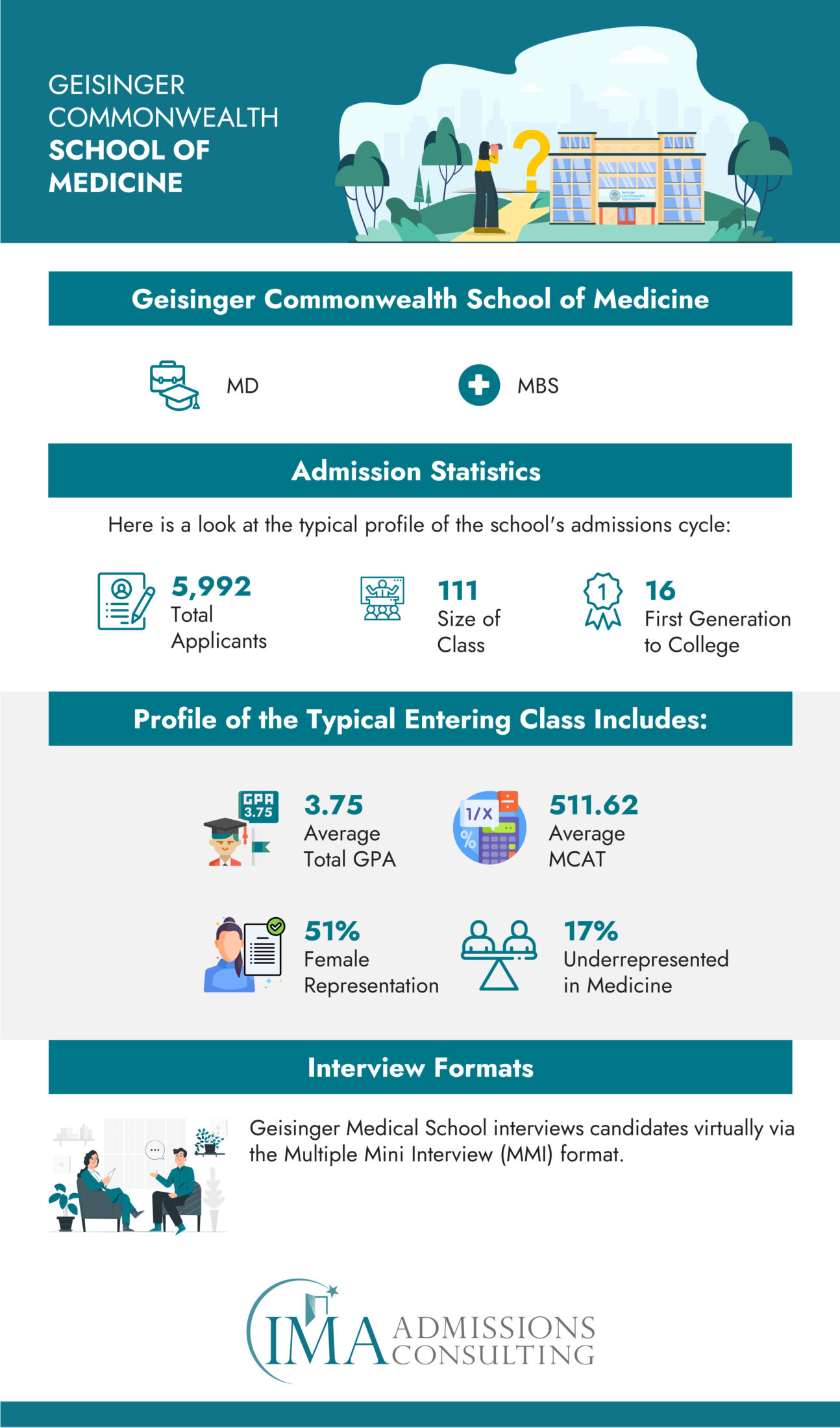
Geisinger Commonwealth School of Medicine Tuition & Cost of Attendance
The following tuition and fees are based on the Geisinger Commonwealth School of Medicine 2022-2023 academic year. Fees are subject to change.
Year 1:
- $59,100 Tuition
- $2,000 Books and Supplies
- $24,193 Room and Board, Travel, and Personal Expenses
- $5,000 Health Insurance
- $50 Disability Insurance
- $656 Student Service Fees
- $1,706 Technology Fee
Total Cost In-State Students: $92,705/Out-of-State Students: $99,261
Year 2:
- $59,100 Tuition
- $300 Books and Supplies
- $25,466 Room and Board, Travel, and Personal Expenses
- $5,000 Health Insurance
- $50 Disability Insurance
- $656 Student Service Fees
- $1,056 Technology Fee
- $985 USMLE
Total Cost In-State Student: $92,613/Out-of-State Student: $99,169
Year 3:
- $59,100 Tuition
- $1,470 Books and Supplies
- $28,013 Room and Board, Travel, and Personal Expenses
- $5,000 Health Insurance
- $50 Disability Insurance
- $656 Student Service Fees
- $1,056 Technology Fee
- $985 USMLE
Total Cost In-State Student:$96,330/Out-of-State Student: $102,886
Year 4
- $59,100 Tuition
- $700 Books and Supplies
- $220 Graduation Fee
- $25,466 Room and Board, Travel, and Personal Expenses
- $5,000 Health Insurance
- $50 Disability Insurance
- $656 Student Service Fees
- $1,056 Technology Fee
- $985 USMLE
Total Cost In-State Student:$92,248/Out-of-State Student: $98,804
Visit GCSOM’s website for more information about scholarships and grants.
You can’t be too prepared when calculating the costs for attending medical school. For more information, visit our Medical School Tuition Database where we offer detailed guidance and helpful information.
AMCAS Primary Application & Geisinger Medical School Secondary Application
There are two applications that you will need to complete to be considered a candidate for the Geisinger Commonwealth School of Medicine. The primary application is the standard American Medical College Application Service (AMCAS), which is what most medical schools use in their admissions process.
The AMCAS will gather basic information about you, your education, your extracurriculars in and out of school, and your personal statement. It will ask you to list all medical schools for which you plan to apply, and AMCAS will forward this primary application to those schools you have indicated.
When Geisinger Medical School receives your completed primary application from AMCAS, they will review and to confirm all qualifications have been met and then you’ll be invited to complete the secondary application unique to GCSOM.
This secondary application from GCSOM will ask you to go into more detail about who you are, the experiences you have gathered, and what you plan to achieve. The more open you are, the better.
The fee for completing the secondary application is $100. There is an option for a fee waiver through AMCAS Fee Assistance Program (FAP) that will carry over if you submit the waiver to admissions@som.geisinger.edu.
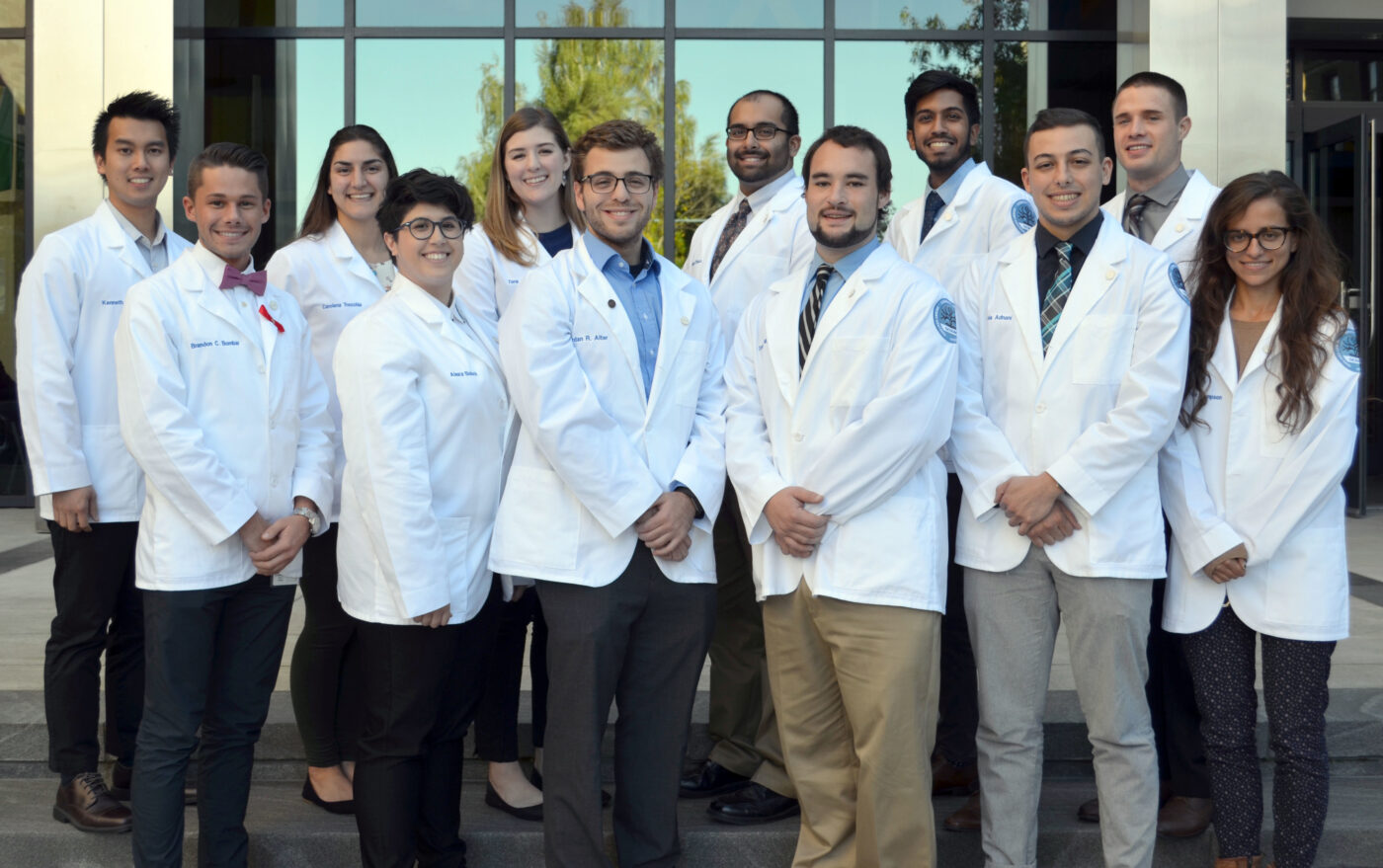
Geisinger Commonwealth School of Medicine Secondary Application: Essay Prompts, Sample Answers, and Advice
Below are the Geisinger Medical School’s secondary essay questions for the 2022-2023 application cycle.
Essay #1
Given Geisinger Commonwealth School of Medicine’s unique mission and values, please tell us why you believe you are a good fit for our institution.
This is a classic question that is often presented by medical schools. This is why it’s important to review the Geisinger values and the school mission to get a feel for what they want to see in a candidate. You’ll want to be honest and genuine but highlight areas in which your personal values mesh well with GCSOM’s values.
Essay #2
List the five most important attributes you believe a physician should possess. Please choose one that you believe you embody and describe a personal experience that demonstrates this trait.
Take your time on this prompt. You’ll want to put some deep thought into what you think are important traits for a physician to possess and also how GCSOM would answer that same question. Think about their focus on being community centered, patient-focused, and other qualities this school emphasizes. Then dig deep and share a true story that will stick with the admissions committee when they read it.
Essay #3
Geisinger Commonwealth values diversity and is committed to maintaining an inclusive environment. How will you contribute to our commitment to diversity, social justice, equity, and inclusion?
This is one of the more difficult questions because there are a few paths to answering it. The point is to gauge your perspective on two levels: 1. Do you personally bring diversity to the student body, and 2. How will you be a champion for diversity, social justice, equity, and inclusion?
If you consider yourself a member of a minority group, whether that be in race, sexual orientation, gender identification, or something else, you may consider sharing about your experience and how your personal journey will prompt you towards being a force for good in the battle for equality and diversity on campus. If you don’t feel you fall into this category of minority, then consider other ways to make the connection and share how you will support the movement to bring more social justice and equity to the school system and, eventually, the medical system at large.
Sample Answer:
In my high school of over 350 students, I was one of 9 non-binary students that I can recall. While the tone set by most of the faculty and administration was positive and inclusive towards LGBTIQA students, I often felt like an anchovy swimming in the opposite direction of my school against the masses. It was lonely. It was frightening. It could have stopped me from progressing to achieve my goals if I had let it.
I am deeply and thoroughly acquainted with the concept of feeling alone, and it’s been my passion for as long as I can remember to promote the celebration of diversity, fighting for equality, and living out inclusion in real-life ways. I would like to be a part of the movement to do that at Geisinger Commonwealth School of Medicine, and then to continue to labor towards a more socially just and inclusive medical community.
Geisinger Medical School’s commitment to social justice, as well as the work you do to train physicians who see each patient as an individual from their own unique community, with their own unique set of needs, and with equal value are why I hope to graduate from Geisinger one day. Not only do I know that you will make me the kind of doctor that truly sees the needs of my patients, but I am confident I will be amongst the students leading the way towards a day of total inclusion at Geisinger Commonwealth as well.
Essay #4
If you have previously applied to Geisinger Commonwealth’s Doctor of Medicine program, please describe your significant experiences between this year’s application and your previous application. (If you are not a previous applicant, please type, “N/A” in the response area.
This prompt is pretty self-explanatory, but it is probably one of the most important questions on your application if you are returning to apply for the second time. Applying a second time means the committee did not see what they wanted in your first application so it’s important that you show them why your application is now worth a second look. Go into detail about your experiences and how you’ve grown since your last application.
Geisinger Commonwealth School of Medicine Interview Process
If your primary and secondary applications make it through to the next stage of the process, the admissions committee will send you an email with an invitation to take part in an interview. All interviews are conducted virtually with the Multiple Mini Interview (MMI) format. Be sure to follow all the advice contained in the invitation email.
The interview is a vital step in the application process because this is the committee’s best opportunity to get to know the real you. They can get an in-depth look into who you are as a student and who you might become as a physician and a world citizen.
Preparing for this interview leaves many applicants feeling apprehensive and fearful, and the more prepared you are the less stressful the whole ordeal will seem. Many students find it helpful to receive personalized coaching and even a mock interview through our Medical School Admissions Consulting program.
Medical School Admissions Consulting
Here at International Medical Aid, we aim to help aspiring physicians find, apply, and matriculate to the medical school that is the perfect fit for them so that the next generation of medical professionals are stronger and more humanities-focused than ever before.
Applying for medical school is a complex endeavor and our goal is to make it easier for you. One of the ways we do that is by offering Medical School Admissions Consulting.
This service is helpful in so many ways, including assistance with your applications, advice for the essay prompt answers, and help preparing for your interview. Mock interviews and one-to-one consulting go a long way in making you ready for what’s coming next.
Take a moment to schedule a free consultation with one of our experts here.
Voluntary Healthcare Internships Abroad
There’s nothing quite like heading into a brand new environment with your mind wide open to learn as much as you can from brilliant professionals in the various fields of medicine. If you’re intrigued by the idea of studying abroad, shadowing skilled physicians, and working with real patients in their corner of the world, IMA’s voluntary healthcare internships abroad program might be perfect for you.
Our pre-med shadowing study abroad program was designed specifically for pre-medical and gap year students (though it’s also open to medical students) who want real-life clinical experience in a foreign country. The learning that happens during these internships is unique because you’ll be interacting with patients who have medical conditions unique to their area. You can’t gain this type of knowledge through books.
Please take a few minutes to explore the benefits of our pre-med shadowing study abroad program and reach out if you have any questions.
Best of Luck!
You’re ready to start on your application and take the first step towards becoming a medical student at Geisinger Commonwealth School of Medicine. The journey towards matriculation is tough, but this guide provides you with the essential information needed to get there. Just take it one step at a time, putting careful thought into every aspect of the process, and be genuine.
If you think you’d benefit from a more personal one-to-one approach to preparing, consider our Medical School Admissions Consulting program. Getting into a top-notch school like Geisinger Medical School is no easy task, and a little (or a lot) of guidance from one of our professional consultants may be just what you need.
We also have a variety of other Medical School Guides for you to peruse. If you do a search for “medical schools near me”, you can find programs in your area and then search to see if we have a guide for that program. Below is a partial list of the medical guides we have available:
- Penn State Medical School
- CUNY School of Medicine
- SUNY Downstate Medical School
- NYIT College of Osteopathic Medicine
- NYU Long Island School of Medicine
- TOURO College of Osteopathic Medicine
- Albany Medical College
- Norton College of Medicine at Upstate Medical University
- Jacobs School of Medicine at the University at Buffalo
- Hofstra Zucker School of Medicine
- Weill Medical College of Cornell University
- University of Rochester Medical School
- Icahn School of Medicine at Mount Sinai
- Renaissance School of Medicine at Stony Brook University
- Albert Einstein College of Medicine
- Ohio University Heritage College of Osteopathic Medicine
- Northeast Ohio Medical University (NEOMED)
- University of Cincinnati College of Medicine
- University of Toledo College of Medicine
- Wright State University Boonshoft School of Medicine
- Ohio State University College of Medicine
- Rowan University School of Osteopathic Medicine
- Hackensack Meridian School of Medicine (HMSOM)
- Rutgers New Jersey Medical School (NJMS)
- Rutgers Robert Wood Johnson Medical School
- Cooper Medical School of Rowan University (CMSRU)
- A.T. Still University Kirksville College of Osteopathic Medicine
- Saint Louis University School of Medicine
- University of Missouri Medical School
- Kansas City University (KCU)
- UMKC School of Medicine
- New York Medical College
- University of Pittsburgh School of Medicine
- University of Wisconsin Medical School
- VCU School of Medicine
- University of Maryland School of Medicine
- Case Western Medical School
- University of North Carolina Medical School
- University of Florida Medical School
- Emory University School of Medicine
- Boston University College of Medicine
- California University of Science and Medicine
- UC San Diego Medical School
- California Northstate University College of Medicine
- Touro University of California
- CHSU College of Osteopathic Medicine
- UC Davis School of Medicine
- Harvard Medical School
- UC Riverside School of Medicine
- USC Keck School of Medicine
- UT Southwestern Medical School
- Long School of Medicine at UT Health San Antonio
- University of the Incarnate Word School of Osteopathic Medicine
- UT Austin’s Dell Medical School
- UTMB School of Medicine
- McGovern Medical School at UT Health
- Johns Hopkins School of Medicine
- McGovern Medical School at UT Health
- The University of Texas Rio Grande Valley School of Medicine
- UNT Texas College of Osteopathic Medicine
- University of Houston College of Medicine
- Texas A&M College of Medicine
- Johns Hopkins Medical School
- Baylor College of Medicine
- George Washington University School of Medicine
- Vanderbilt University School of Medicine
- St. George’s University School of Medicine
- Lake Erie College of Osteopathic Medicine (in Pennsylvania)
- Sidney Kimmel Medical College at Thomas Jefferson University
- Wake Forest University School of Medicine
- Western University of Health Sciences (in California)
- Drexel University College of Medicine
- Stritch School of Medicine at Loyola University Chicago
- Georgetown University School of Medicine
- Yale School of Medicine
- Perelman School of Medicine
- UCLA Medical School
- NYU Medical School
- Washington University School of Medicine
- Brown Medical School
Feel free to contact us if you have questions about the application process, our medical school guides, or our Medical School Admissions Consulting.


